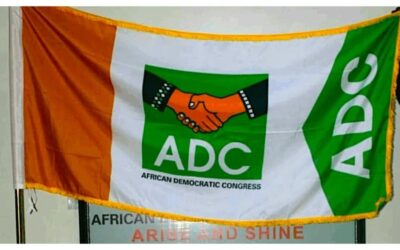2023: Atiku’s Eligibility to Contest as President Takes Centre Stage
The eligibility of Atiku Abubakar, Nigeria’s former Vice-President and to run as president has propped up again. This time, the Attorney-General of the federation is the one handling the issue. It is a frontal attack as seen in the affidavit published on 6 April 2021. The AGF’s affidavit is in support of a suit marked FHC/ABJ/CS/177/2019 and filed before a Federal High Court in Abuja by the Incorporated Egalitarian Mission for Africa.
Despite the fact that the suit was filed before the last presidential elections, it was yet to be heard in court. It was exhumed on 15 March 2021 as Justice Inyang Ekwo declared that the suit was ripe for hearing. May 4 was fixed as the date for the first hearing.
Asides the presidency, Atiku’s political future in Nigeria is on the line given that the suit borders on his citizenship as a Nigerian. Some of the requirements to run for the office of the president in Nigeria are: the candidate must have attained the age of thirty-five years; must be a member of a political party and sponsored by that political party; have been educated up to at least School Certificate level or its equivalent, and the candidate must also be Nigerian by birth. The circumstances surrounding Atiku’s birth nonetheless have always been a bone of contention, especially in the last 16 years that he has been pushing to become Nigeria’s president.
On the one hand, as the AGF argued through his Oladipo Okpeseyi-led legal team, having not been born a Nigerian or by Nigerian parents, and having not met the provisions of Section 25 (1)/(2) and 131 (a) of the constitution, Atiku would be violating section 118 (1) (k) of the electoral act should he put himself forward as a candidate.
Malami in the affidavit stated that “the first defendant was born on the 25th of November, 1946 at Jada, at the time in Northern Cameroon. By the plebiscite of 1961, the town of Jada was incorporated into Nigeria:
“The first defendant is a Nigerian by virtue of the 1961 plebiscite, but not a Nigerian by birth. The first defendant’s parents died before the 1961 plebiscite.”
The attorney-general of the federation further noted that the effect of the June 1, 1961 plebiscite was to have the people of Northern Cameroon integrated into Nigeria as new citizens of the country. In his words, “this qualified all those born before the 1961 plebiscite as citizens of Nigeria, but not Nigerians by birth. Consequently, only citizens born after the 1961 plebiscite are citizens of Nigeria by birth.”
Analysts who argue in the same vein make reference to the provisions of the 1999 constitution that the reason why the law stipulates that a Nigerian president must be Nigerian by birth is to ensure that such a person will be absolutely loyal to the Nigerian state as the number one citizen.
Atiku’s case is even more compounded by the fact that his parents do not belong to any indigenous tribe in Nigeria until their death. Jada, where Atiku is from, used to be in Ganye Local Government Area of Adamawa state. Ganye is regarded as the mother of the whole Chamba tribe. Jada as a Local Government Area was created from Ganye Local Government Area of Adamawa state, Nigeria.
As critics argue, Ganye was never part of Nigeria legally until the February 1961 plebiscite where the people of the then Northern Cameroon voted to join Nigeria. The area was entrusted to Britain by a League of Nations mandate in 1919 and later as Trust Territory by the United Nations in 1946.
According to the suit filed against the Peoples Democratic candidate, the first defendant’s father died a citizen of Northern Cameroon in 1957 prior to the referendum of June 1, 1961, that made Northern Cameroon become part of Nigeria. It can therefore be postulated that “That the 1st Defendant’s ancestral origin is deeply rooted in the then Northern Cameroon.”
On the other hand, Atiku’s case is torn between those who insist he should be disallowed from contesting any political office on this note and those who opine that it is unnecessary to raise the roof at this point over his descent when it didn’t matter when he became vice president of Nigeria as at 1999.
More so, it is believed that Atiku has earned his right as a Nigerian having served as one-time governor of Adamawa State and vice-president of the federation. Atiku had also mentioned in court that apart from serving as Vice President from 1999 to 2007, he held many public/private offices in Nigeria, including serving as Governor of Adamawa State and as a Commissioned Officer of the Nigeria Customs Service for more than twenty years before he retired.
Pundits equally criticise the fact that the suit against the former vice-president is discriminatory and lacks fairness, as well as courtesy for the peoples of Northern Cameroon who parted ways with their Cameroonian brothers on 1 June 1961, to be with Nigeria.
Besides, Barrack Obama who was the first black American president was not born in the US. He was also a son of immigrants. None of his biological parents were originally American, yet he was elected twice as US President. His parents were in fact from Kenya.
Even so, it is argued that Atiku’s Nigerian heritage should not be in question given the fact that his grandfather was from Sokoto. As Mr Segun Sowunmi explained, “Atiku’s grandfather followed his friend to Adamawa then called Gongola, and Atiku’s grandfather gave birth to Atiku’s father there. But it has never been under guesswork that Atiku is a full-fledged bona fide Nigerian.”
The former vice-president has also said his paternal grandfather, Garba Atiku Abdulkadir, was born and raised in Wurno, Sokoto State. Corroborating Sowunmi’s position, Atiku noted that his paternal grandfather was “an itinerant trader” who left Wumo for Jada on a trading expedition with his friend, Ardo Usman. He opined that it was in Jada that his father was born and named Garba.
Read Also: Restructuring: Dissecting Atiku’s Failed State Antidote
He also said that his mother, Aisha Kande, was a Nigerian and a daughter of a traditional ruler from Dutse, now the capital of Jigawa State. He said his parents were all Fulani, which is one of Nigeria’s largest indigenous tribes.
With issues surrounding Atiku’s citizenship coming up strongly at this time again, it seems it would likely become part of the calculations for 2023. Even if the case drags for months or years, its capacity to distract Atiku’s camp is not in doubt. With the Attorney-General of the federation at the forefront, the full force of the federal might will be at the disposal of all those behind the case. It could equally unsettle Atiku’s party as they would not want to present a candidate that might be disqualified by the court some few weeks to Election Day. Many supporters of Atiku and the party hierarchy might be compelled to face the reality of the need to pick a candidate with no hiccups.
It might just be the “nuisance value” and benefits from the huge distractions and commotion this case would generate, that Atiku’s opponents need as a tool, to gain the advantage in the presidential race. However, the ultimate answer to the question of Atiku’s eligibility to contest remains in the hands of the judicial system as the nation awaits the beginning of legal fireworks on May 4.
Nelson Okoh


